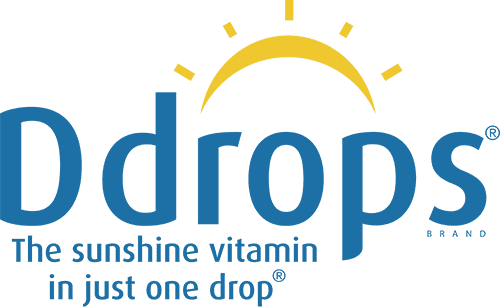May 7, 2020
Benefits of Vitamin D vs. Vitamin C
We talk a lot about our beloved sunshine vitamin here and for good reason! But there are a lot of other vitamins that we need to 1) keep us healthy and 2) work with vitamin D to maximize our bone strength. Vitamin C is one of those other vitamins that we need for our overall health and to help vitamin D work up to most of its magic.
How We Use Vitamin C
Vitamin C is a water-soluble vitamin, which means our bodies use what it needs at the moment and then flushes out the rest when we go to the bathroom. Our bodies are unable to store any un-used C for their later needs. This means we need to be getting vitamin C from our diet on a regular basis throughout the day. Vitamin C is responsible for keeping our immune system strong, maintaining healthy muscles, and for producing collagen, a protein the body uses to build and maintain strong bones. Collagen also works to keep your joints and skin young and healthy.
Vitamin C is also a powerful antioxidant, which helps to prevent chronic illnesses like inflammation, diabetes, heart disease, and certain cancers. Health Canada’s recommended daily amounts for vitamin C are 75mg for adult women, 85mg for pregnant women, 120mg for breastfeeding women, and 90mg for adult men. We find vitamin C in a lot of different foods, but the ones with the highest amounts are:
- Berries (strawberries, raspberries, blueberries)
- Citrus Fruits (grapefruits, oranges, clementines)
- Tomatoes
- Bell Peppers
- Broccoli
- Spinach
- Brussels Sprouts
- Cauliflower
Try adding some fresh berries to your morning oats or yogurt, having a salad for lunch, and crudité with hummus for a snack.
How We Use Vitamin D
Vitamin D is a fat-soluble vitamin, this means that our bodies are able to store vitamin D in our fat cells for later use. But even though our bodies are able to store some for later, we still need to take in adequate amounts every day to healthy. A deficiency in vitamin D leads to weakened bones, brittle teeth, bone fractures, and osteoporosis, it has also been linked to many chronic illnesses. Vitamin D is a little harder to get from our diet than vitamin C because it naturally occurs in less food, making a daily vitamin D supplement a great idea to protect our teeth and bones from becoming frail, brittle, and breaking. Health Canada’s recommended daily amounts for vitamin D are 400 IU for children up to 12 months, 600 IU for anyone ages 1 – 70 years old, and 800 IU for people over the age of 70.
Foods that are a good source of vitamin D are:
- Fatty fish (like salmon, mackerel, sardines, tuna, and swordfish)
- Fortified milk and yogurt
- Fortified cereal
- Egg yolks







ทิ้งข้อความไว้
เว็บไซต์นี้ได้รับการคุ้มครองโดย hCaptcha และมีการนำนโยบายความเป็นส่วนตัวของ hCaptcha และข้อกำหนดในการใช้บริการมาใช้